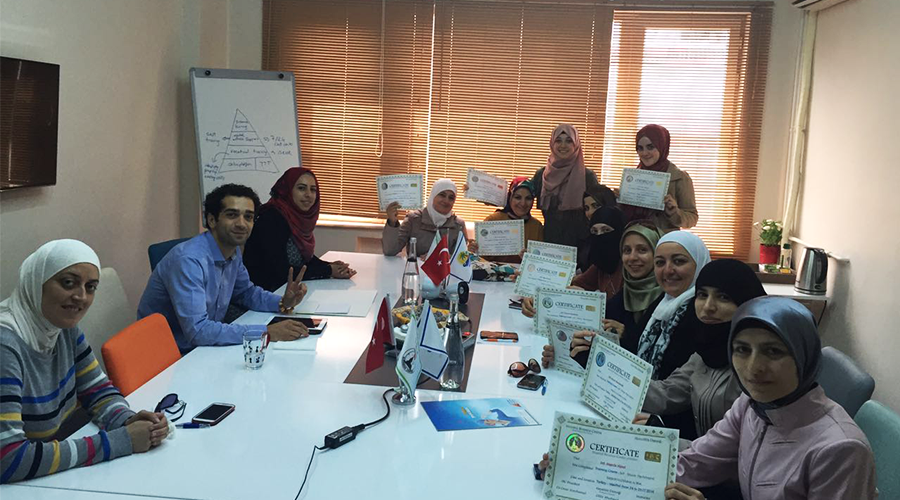
Psychosocial Support Program for Refugee Women
Hundreds of thousands of people are forced to leave their countries and migrate to other countries every year due to wars and natural disasters. For the last 7 years, Turkey has been hosting Syrian refugees due to the war in Syria. According to the current numbers, there are more than 3.5 million Syrians living in Turkey.
Refugees face many problems such as housing, education, health, social security and social cohesion. Wars have many effects on refugees including psychological traumas and neuroses and various other effects that surface later in life.
It is important to make systematic studies to reduce the effects of the insecurities experienced by refugees and the traumas caused by war and civil conflicts. Psychosocial support is defined as the provision of psychological and material resources to help individuals cope with traumas and overcome them.
War and immigration have gender-based influences and effects, as traumas can be related to gender-based violence.
The psychosocial support program for women aims to provide women with information about the traumas they may experience and how to cope with them through various psychological techniques that they can apply on their own and through raising awareness about the causes of these traumas.
The program also focuses on alleviating the effects of traumas by increasing social relations among women with similar conditions.
The following activities will be carried out as the main titles within the program:
1.) What is psychological trauma?
1.a.) How is trauma defined, interpreted, and what is the name of the trauma experienced?
1.b.) What are the psychological and psychosomatic symptoms of trauma?
2.) Gender-based violence and related psychosomatic and psychological disorders and their revelation and the introduction to the therapy methods offered as a support in this field.
3.) Traumas based on social conflicts and war and introduction to the therapy methods.
3.a.) The gender-based effects of war and traumas caused by these effects and social conflict.
4.) Traumas and anxiety related to precarity caused by immigration and recognition of anxiety disorders and introduction to the therapy methods in this area.
5.) 4-7-8 Exercise (or Relaxing Breathing): Regular and careful breathing exercises to work on the psychosomatic effects of anxiety disorders such as stress-related health problems and panic attacks.
6.) “Safe place” activity: Working on the techniques of displacing the mind from the fixation of fear and anxiety.
7.) To strengthen the sources of support to alleviate the effects of trauma. What are these sources and how can we use them?
8.) People who may need further support will be directed to the respective institutions.
Purpose:
The aim of the group sessions is to develop a gender-based approach to traumas, symptoms, psychosomatic and psychological disorders, and to work on the traumas and symptoms by looking at the contexts of war and migration.
Method:
Time:
Each session will last for a duration of 5 hours. There will be a total of 3 breaks in each session. (4 hour work + 1 hour break)
1st section (1 hour): Introduction to the explanation of psychological trauma and introduction to the traumas based on gender-based violence and the therapy methods.
15 minute break
2nd section (1 hour): Recognizing the symptoms of war and civil conflict based traumas and introduction to the methods of therapy. Recognizing the anxiety and precarity caused by migration and introduction to the therapy methods within this area.
30 minute break
3rd section (45 minutes): 4-7-8 Exercise or Relaxing Breathing Exercise.
4th section (30 minutes): Alleviating the effects of trauma working on the methods to strengthen self-support.
15 minute break
5th section (45 minutes): Safe place activity.
The program will be conducted between November-April 2018 at the HayatSür “Grow Together” Mother and Child Development Center located in the Fatih district of Istanbul city.
Contact: info@hayatsur.org